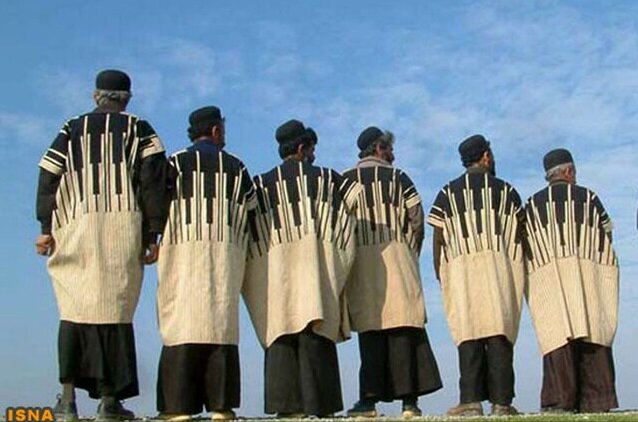Bakhtiari people hoping to win national recognition for their Chuqa weaving

TEHRAN - Bakhtiari people are hoping to win national recognition for their time-honored skill of weaving Chuqa, which is a black and white wool cloak.
“We are pursuing a possible registration of weaving Bakhtiari's Chuqa on the national list of intangible cultural heritage,” Lorestan province’s tourism chief said on Monday.
Currently, some 90 handicraft fields are practiced in workshops across the Lorestan province, the official said.
Passed down from generation to generation, the skill of weaning such garments should be preserved as a cultural heritage, the official said.
Chuqa is sleeveless but has wide openings for the arms. The costume distinguishes Bakhtiari men from Lurs and Kurds.
It is only used by Bakhtiari men who live in Lorestan, Chaharmahal-Bakhtiari, Khuzestan, and Isfahan provinces. Bakhtiari people are one of the most populous tribes in Iran.
The Chuqa is woven on a horizontal loom by women, and it takes about 20 days to be completed. The quality of the Chuqa varies according to the material used for its weaving; it also indicates the status of men within their tribes.
Men wear the knee-length cloak cloth every season of the year; in cold and windy weather, they fix the Chuqa with a shawl on the waist and roll up the bottom part of the Chuqa during mountain climbing.
All Chuqas have similar patterns with white and black stripes. Some believe that these patterns are inspired by the Chogha Zanbil Ziggurats, an ancient Elamite complex in the Khuzestan province.
Others believe that it is inspired by the battlements of Persepolis, which remind the mountains and valleys. Such battlements are also seen on the crowns of the Iranian kings.
Narratives say that Chuqa originates from a local word, which means heel. Due to the mountainous nature of the region, that black and white texture is interpreted as the heights are always lightened and the valleys are dark.
AFM
